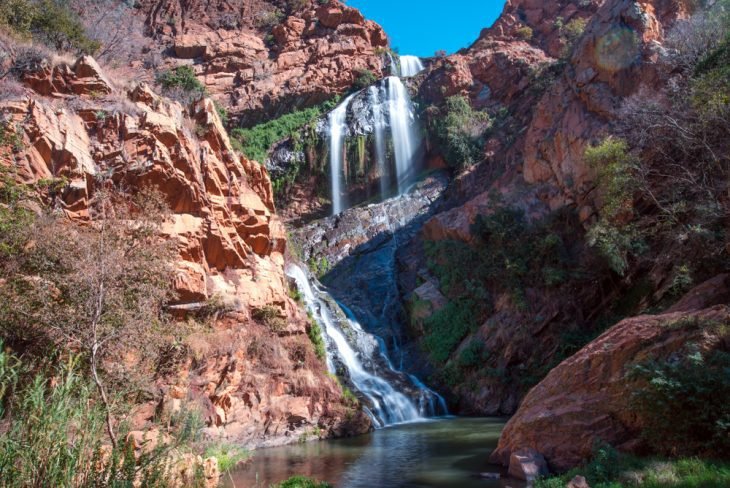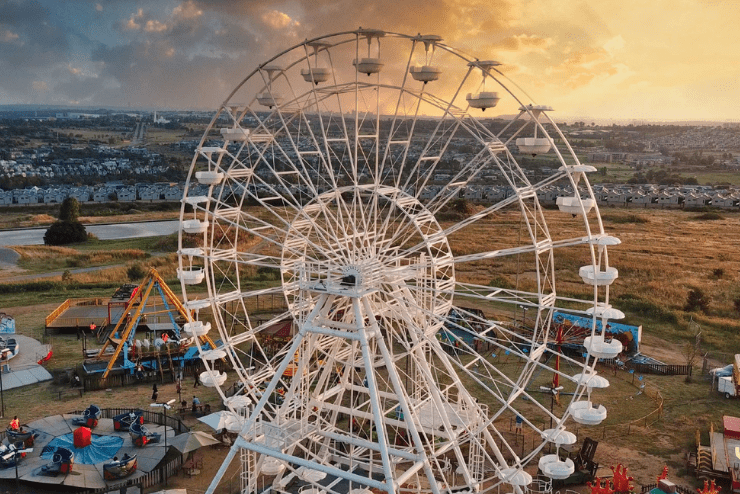Not known Facts About Johannesburg North Attractions
Not known Facts About Johannesburg North Attractions
Blog Article
Little Known Facts About Johannesburg North Attractions.
Table of Contents6 Simple Techniques For Johannesburg North AttractionsThe Basic Principles Of Johannesburg North Attractions About Johannesburg North AttractionsThe smart Trick of Johannesburg North Attractions That Nobody is Talking AboutLittle Known Facts About Johannesburg North Attractions.What Does Johannesburg North Attractions Mean?Not known Incorrect Statements About Johannesburg North Attractions
You should keep security in mind and vacationers must continue to be alert at all times when in strange surroundings. Speak with the locals when you remain in town to locate out about the location you are remaining in. Johannesburg North attractions. When on the road (this does not apply to mall and various other protected atmospheres) best general recommendations is to attempt your ideal to resemble a neighborhood and to prevent presenting any type of wide range
6 Easy Facts About Johannesburg North Attractions Explained
Teacher Revil Mason O. J. (Thomson, 1946) discovered the Witwatersrand's pre-colonial background. His historical work blew up the 'em pty land' misconception, according to which the region was empty of human habitation before the arrival of European settlers. In his publications Prehistory of the Transvaal: A Record of Human Task (1962) and Beginnings of Black People of Johannesburg and the Southern Western Central Transvaal Advertisement 3501880 (1986 ), Professor Mason showed the degree of social and economic growth in the location before Europeans established foot right here.

See This Report about Johannesburg North Attractions
In 1878, David Wardrop discovered gold in quartz blood vessels at Zwartkop, north of Krugersdorp. In 1881, Stephanus Minnaar came across gold on the ranch Kromdraai, near the Cradle of Humankind.
In March 1886, a protrusion (soon to be called the Main Coral reef) was discovered, fairly luckily, on Gerhardus Oosthuizen's farm Langlaagte. Some claim that the Lancastrian coal miner George Pedestrian discovered this reef. An additional itinerant English prospector, George Harrison (that had formerly operated in Australian mines) acquired a prospecting licence in regard of Langlaagte in May 1886.
He made a decision to carry on in a quest for greener pastures, and disposed of his Langlaagte claim for the handsome sum of 10. Alas: below lay the richest goldfield ever discovered. The discovery of this rich auriferous reef provoked a gold rush that signified the end of agrarian tranquillity in the southerly Transvaal.
It would certainly, within six years, come to be the largest community in southerly Africa. Within a years, it would make the Z. A. R. until after that an anarchical and insolvent little state the richest nation in Africa. By the millenium, the Z. A. R. was to surpass Russia, Australia and the United States of America to become the globe's leading gold manufacturer, creating greater than a quarter of the world's gold.
Excitement About Johannesburg North Attractions
It was known as Ferreira's Camp, named after Colonel Ignatius Ferreira. He was a Boer adventurer upon whom the British authorities had actually bestowed the standing of Companion of one of the most Identified Order of St Michael and St George (qualifying him to the post-nominal letters C. M. G.) in gratefulness for his function in the battle that had actually deposed the Pedi king Sekhukhune in 1879.
Soon the camp was brimming with camping tents and wagons as newbies got here daily from everywhere. By September 1886, some 400 individuals lived in Ferreira's Camp, which soon boasted upreared iron and wood buildings. 2 other camps were Discover More developed: Meyer's Camp on the farm Doornfontein, and Paarl Camp. The latter was nicknamed Afrikander Camp; lots of people from the Cape Nest resolved there.

Rumored Buzz on Johannesburg North Attractions
This name acquired currency by word of mouth, such that the State Secretary attested the name to the Mining Commissioner on 9 October 1886. Stands in the village were auctioned on basics 8 December 1886. While some stands were cost 10, others were torn down for as low as sixpence.
2 years later, these erven were to transform hands for as long as 750 each. The tented camps diminished as a dorp of corrugated iron buildings created and broadened north of the mines located along the Key Reef Roadway. Locations such as Jeppe's Community (where working-class immigrants erected their homes) and Doornfontein (where the upscale brand-new 'Randlords' began to construct their luxurious homes) were soon contributed to the ever-expanding map of the community.
Johannesburg North Attractions - An Overview
Besides the road names, there were no indicators of Johannesburg being situated in a Dutch-speaking country. Years later on, C. W. Kearns O. J. (among the initial children enrolled at St John's College in 1898) would certainly remember: 'An unusual truth concerning Johannesburg was that, although it remained in the [Boer Republic], virtually everyone spoke English and even the Government slaves dealt with one in English, unless they were very first resolved in the Taal (or Low Dutch)'.
Because of this, Britain had a rate of interest in guaranteeing optimal conditions for gold production on the Witwatersrand, and that the gold was exported to London instead than Berlin an imperative rendered even more clamant by the Z. A. R - Johannesburg North attractions.'s enhancing toenadering with Germany. Mine proprietors were on a clash with President Kruger, whose policy of monopolistic concessions (usually provided to his cronies) protected against mining firms from procuring supplies of products (specifically dynamite) and work on their very own, cheaper terms
7 Easy Facts About Johannesburg North Attractions Described
In 1890, the Volksraad had actually limited the franchise to white guys who had stayed published here in the Z. A. R. for fourteen years or longer, therefore invalidating most of the immigrants (that happened to be the major factors to the fiscus). Frustration for the vote was a simple pretense for advertising a various schedule; many uitlanders regarded themselves as short-lived visitors and had no objective of continuing to be in the Z.
Report this page